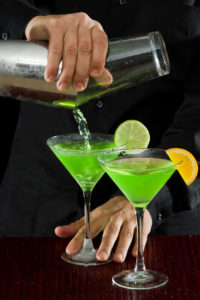Those who enjoy a cocktail may have little idea that Bombay Sapphire Gin is flavored with something known as “grains of paradise,” a peppery African spice with notes of cardamom and ginger.

When a South Florida man named Uri Marrache discovered the fact, he apparently decided to file a class-action lawsuit in 2019 against Bacardi USA and Winn-Dixie Supermarkets, where he had purchased a bottle. Marrache and his attorneys argued that a long-ignored 1868 Florida law forbids the use of the spice, and that Bacardi and Winn-Dixie had engaged in illegal, deceptive trade practices and had enjoyed unjust enrichment from Florida gin drinkers.
The U.S. 11th Circuit Court of Appeals said this week that Marrache was all wet. The court affirmed the Miami district court’s dismissal of the lawsuit, noting that federal law gives safe harbor to food additives that have been approved by the U.S. Food and Drug Administration.
Marrache also failed to state a plausible claim for actual damages and had not shown that he suffered an injury from the grains of paradise, U.S. Circuit Judge Barbara Logoa wrote in the opinion.
A little beverage history is in order. A blog by attorneys with the Patterson Belknap firm explained that the 1868 Florida law may have been drafted to prevent deception by makers of spirits, and that grains of paradise and other flavorings were once added to booze to make it taste stronger than it really was.
England had passed a similar law forbidding such flavorings 50 years earlier. But England’s law was later repealed, while Florida’s never has been.
Marrache, a Miami-area businessman, saw an opportunity and claimed that adding the spice to the gin was a deceptive trade practice. But Bacardi’s attorneys pointed out that there was no deception: Grains of paradise are listed on the bottle, etched right into the glass, as one of the botanical ingredients that gives Bombay Sapphire its distinctive flavor.
Marrache also claimed that he and other class members had purchased an illegal product that is worthless. The appeals court didn’t buy that argument, either.
“Even if the sale of Bombay containing grains of paradise is illegal under Florida law, Bombay certainly is not ‘worthless’ in other states, as it is permitted to be sold under federal law and is thus not valueless …” Judge Logoa wrote.
The case gained attention from around the country, with some observers calling it another example of a frivolous lawsuit that would benefit no one except attorneys who may collect fees. Miami attorney Roniel Rodriguez filed the suit on behalf of Marrache. On appeal, an attorney for the Center for Food Safety, the Center for Science in the Public Interest, Clean and Healthy New York, filed an amicus curiae brief in the case.
Topics Lawsuits
Was this article valuable?
Here are more articles you may enjoy.


 Allstate Doubles Q4 Net Income While Auto Underwriting Income Triples
Allstate Doubles Q4 Net Income While Auto Underwriting Income Triples  Beazley Agrees to Zurich’s Sweetened £8 Billion Takeover Bid
Beazley Agrees to Zurich’s Sweetened £8 Billion Takeover Bid  Former Ole Miss Standout Player Convicted in $194M Medicare, CHAMPVA Fraud
Former Ole Miss Standout Player Convicted in $194M Medicare, CHAMPVA Fraud  Uber Jury Awards $8.5 Million Damages in Sexual Assault Case
Uber Jury Awards $8.5 Million Damages in Sexual Assault Case 


